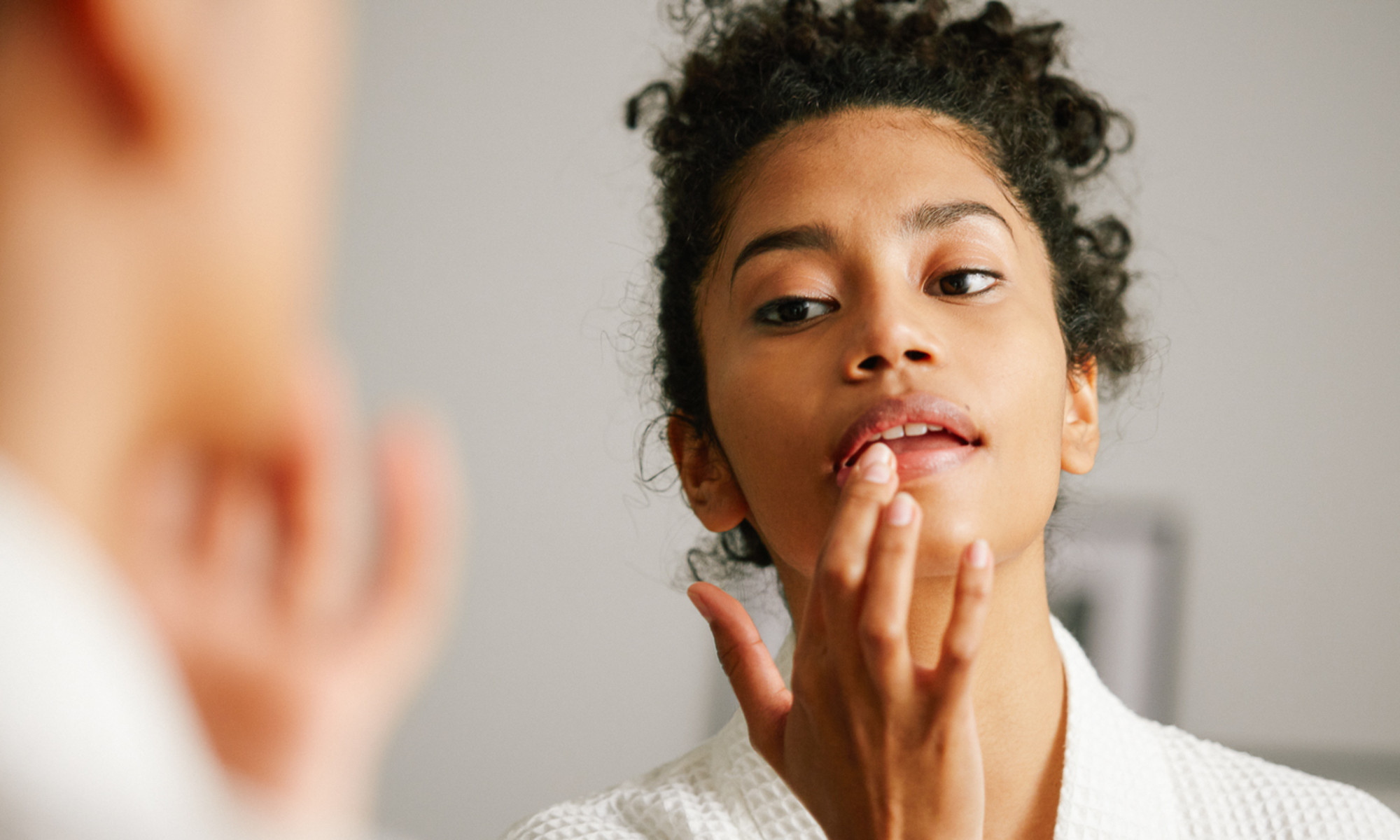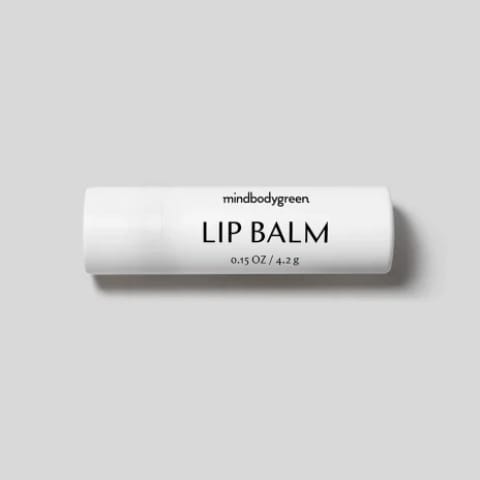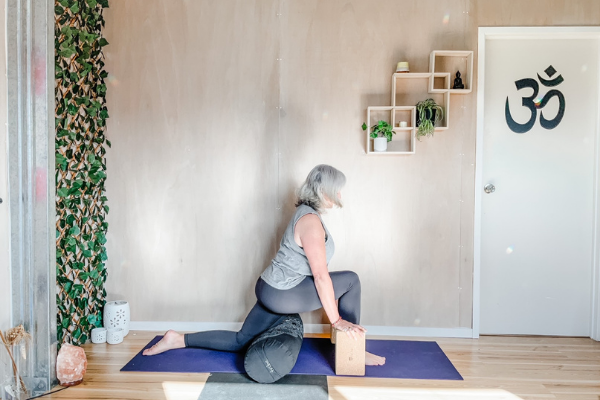This Genius Skin Care Hack Will Keep Your Lips Soft & Chap-Free
"If you have chapped lips all the time, it might be because of your skin care."


mbg Beauty Director
mbg Beauty Director
Alexandra Engler is the beauty director at mindbodygreen and host of the beauty podcast Clean Beauty School. Previously, she's held beauty roles at Harper's Bazaar, Marie Claire, SELF, and Cosmopolitan; her byline has appeared in Esquire, Sports Illustrated, and Allure.com.
Image by Leandro Crespi / Stocksy October 8, 2023 We carefully vet all products and services featured on mindbodygreen using our Our selections are never influenced by the commissions earned from our links. When folks ask what's the appropriate way to layer retinol into their skin care routine, the list goes as follows: Face wash, calming toner (optional), eye cream (optional, but encouraged), retinol serum of choice, and finally, a face moisturizer. Noticeably missing is a lip balm or lip treatment. While lip care isn’t part of the conventional skin care lineup, it can actually be an important missing step to save your skin from irritation. "If you have chapped lips all the time, it might be because of your skin care," board-certified dermatologist Angelo Landriscina, M.D., shared in a TikTok video. Landriscina went on to explain that it's fairly easy to get your skin care products onto your lips, even if you're not intentionally applying them to that area. The most common culprits are retinol, but it could also be traced back to AHAs, BHAs, peels, and any strong active. 
Why you should apply lip balm as part of your skin care routine
If your skin care routine includes potent actives—such as retinol serums, creams infused with AHAs or BHAs, peel pads, masks, or even exfoliating toners—then applying a lip balm as a precautionary step can save the skin from damage. This way, you'll get a layer of protection to buffer this sensitive area from your retinoid and other skin care products that may be causing damage.
"If you want to decrease the potency of a serum—like if it contains potentially irritating ingredients like retinol—then applying a moisturizer first could help make the serum less potent and less irritating," board-certified dermatologist Hadley King, M.D. told us about the layering trick. Think about it—you might set aside a separate step for eye cream because that area is especially sensitive, so why not show the same love to your lips?
Just like the eyes, the skin on the lips is particularly delicate and thin, which means it’s more prone to irritation. So even if the surrounding skin can tolerate a strong retinol or active, the lips may not.
Look for a lip balm that contains a robust assortment of humectants, emollients and occlusives. For example, hyaluronic acid can attract and hold moisture in the skin. Shea butter is a botanical butter that can act as both an emollient and occlusive—helping heal cracks in the skin barrier while also protecting it from further damage. It’s been shown to seal moisture into the skin and protect the skin barrier. One study even suggests it has similar topical effects as ceramides.
The takeaway
Even if you’re not applying an active ingredient directly to the lips, it can still trigger chaps, flakes, and irritation in the area as the lips are more sensitive than skin on the rest of the face. As a fix, derms often recommend applying a thin layer of balm to act as a buffer before you apply retinol or any exfoliating serum. Want more derm-approved tips for taking care of the lips? Check out the lip balm that top holistic derms swear by here.

 JaneWalter
JaneWalter 































